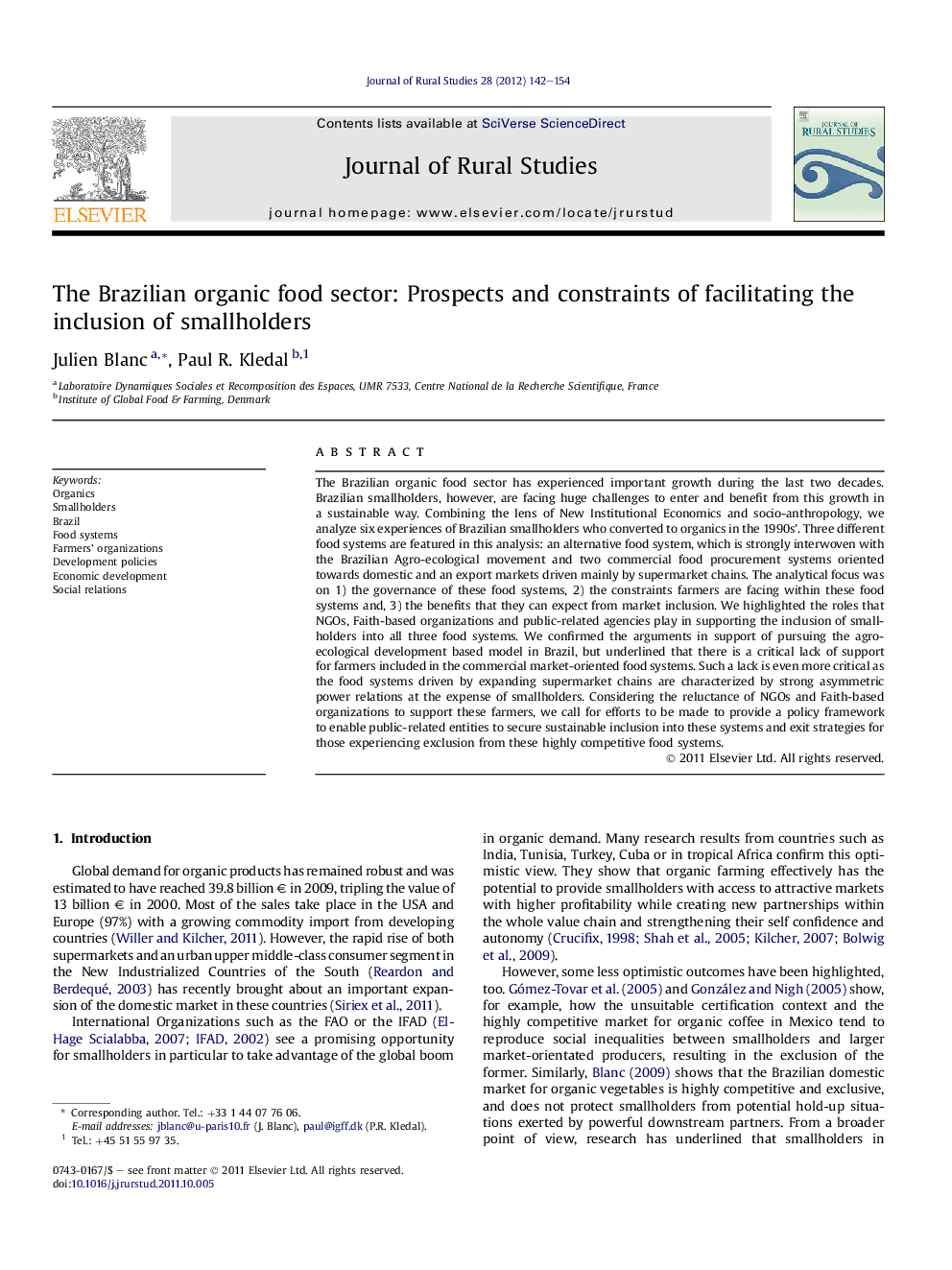| کد مقاله | کد نشریه | سال انتشار | مقاله انگلیسی | نسخه تمام متن |
|---|---|---|---|---|
| 92703 | 159998 | 2012 | 13 صفحه PDF | دانلود رایگان |
The Brazilian organic food sector has experienced important growth during the last two decades. Brazilian smallholders, however, are facing huge challenges to enter and benefit from this growth in a sustainable way. Combining the lens of New Institutional Economics and socio-anthropology, we analyze six experiences of Brazilian smallholders who converted to organics in the 1990s’. Three different food systems are featured in this analysis: an alternative food system, which is strongly interwoven with the Brazilian Agro-ecological movement and two commercial food procurement systems oriented towards domestic and an export markets driven mainly by supermarket chains. The analytical focus was on 1) the governance of these food systems, 2) the constraints farmers are facing within these food systems and, 3) the benefits that they can expect from market inclusion. We highlighted the roles that NGOs, Faith-based organizations and public-related agencies play in supporting the inclusion of smallholders into all three food systems. We confirmed the arguments in support of pursuing the agro-ecological development based model in Brazil, but underlined that there is a critical lack of support for farmers included in the commercial market-oriented food systems. Such a lack is even more critical as the food systems driven by expanding supermarket chains are characterized by strong asymmetric power relations at the expense of smallholders. Considering the reluctance of NGOs and Faith-based organizations to support these farmers, we call for efforts to be made to provide a policy framework to enable public-related entities to secure sustainable inclusion into these systems and exit strategies for those experiencing exclusion from these highly competitive food systems.
► Brazilian smallholders face huge challenges to benefit from organics on the long run.
► Developmental agencies play a crucial role in supporting inclusion in the sector.
► NGOs are reluctant to support smallholders in commercial market-oriented food systems.
► Public agencies should play a greater role in securing the farmers’ inclusion in these food systems.
► Public agencies should provide exit strategies for farmers experiencing exclusion.
Journal: Journal of Rural Studies - Volume 28, Issue 1, January 2012, Pages 142–154
